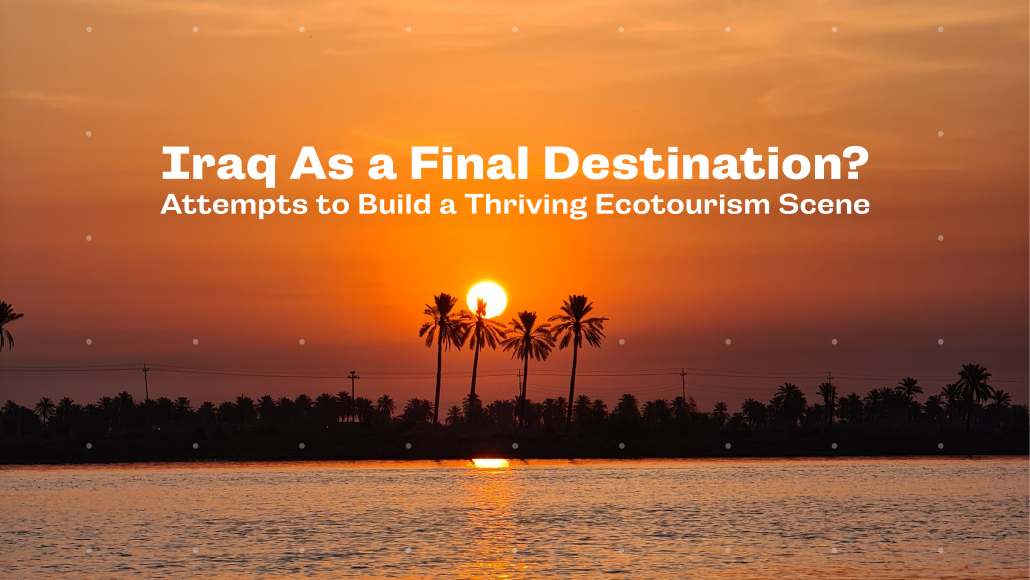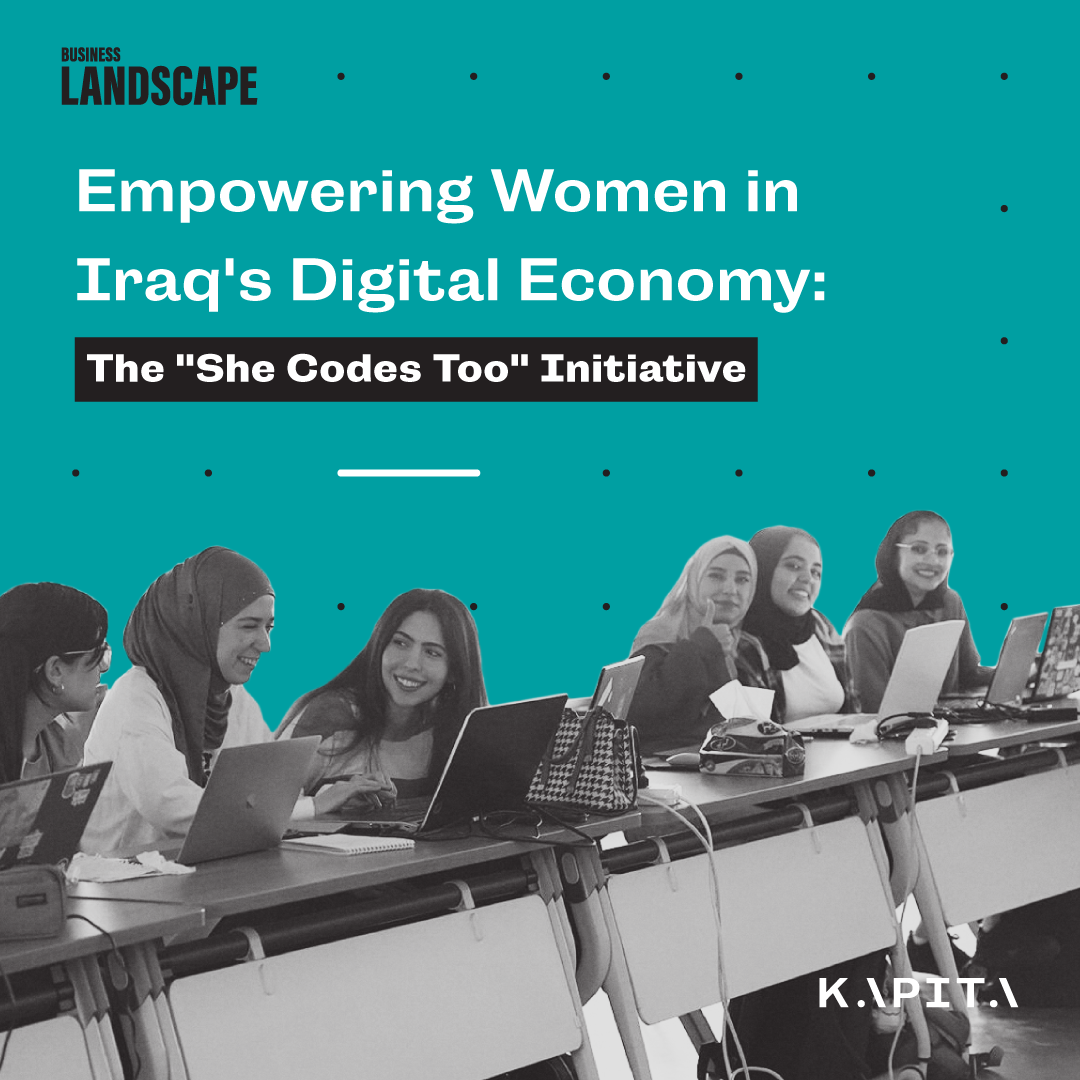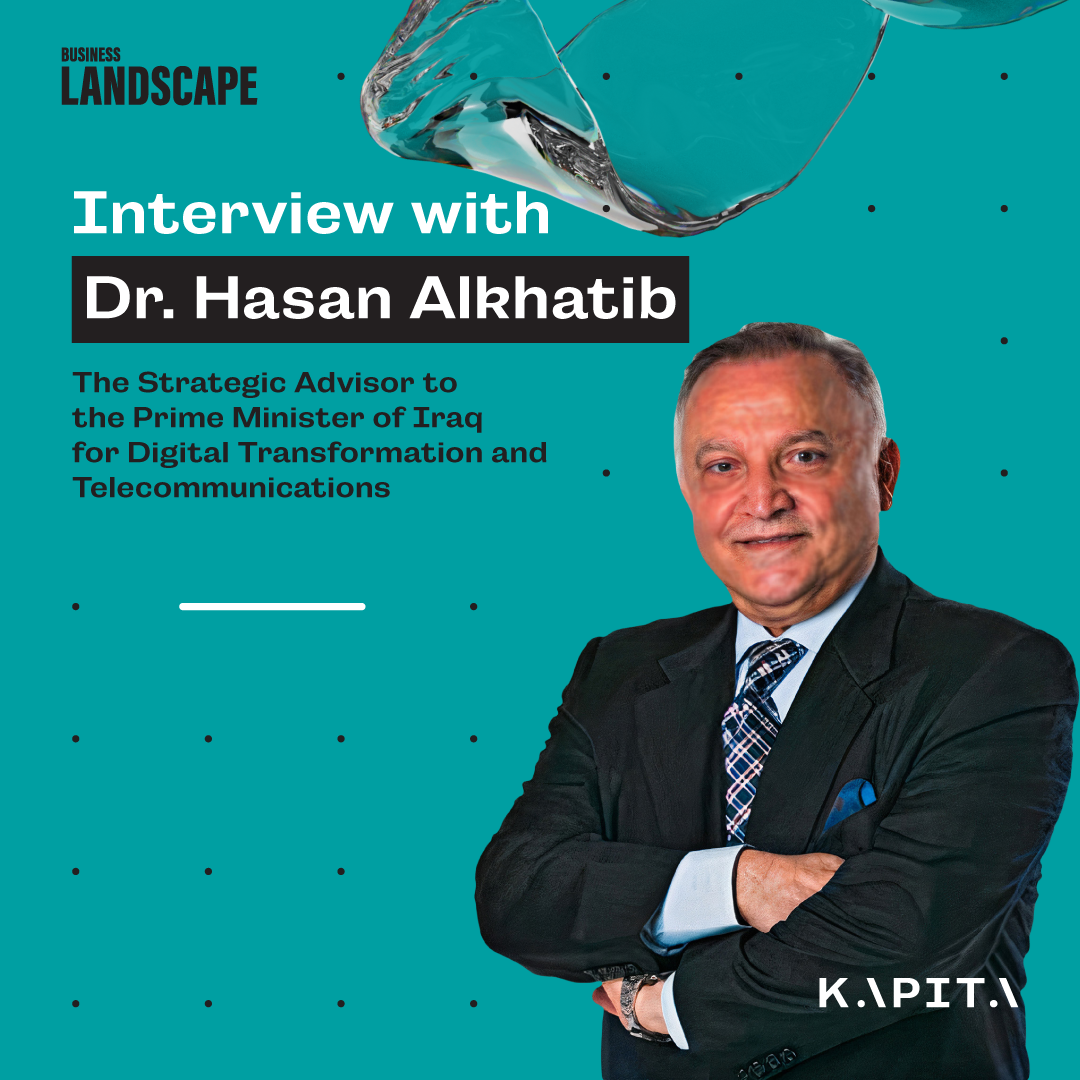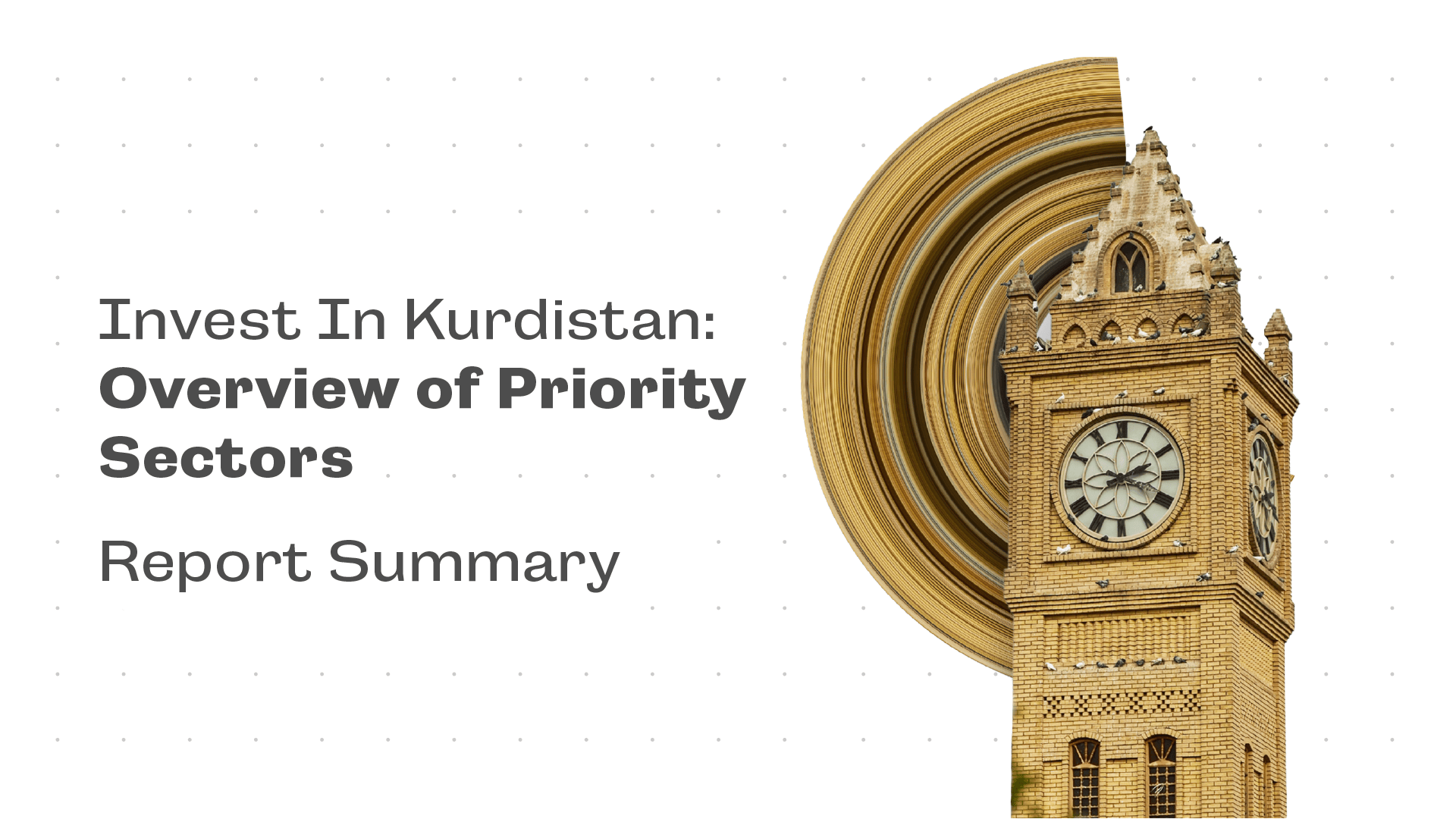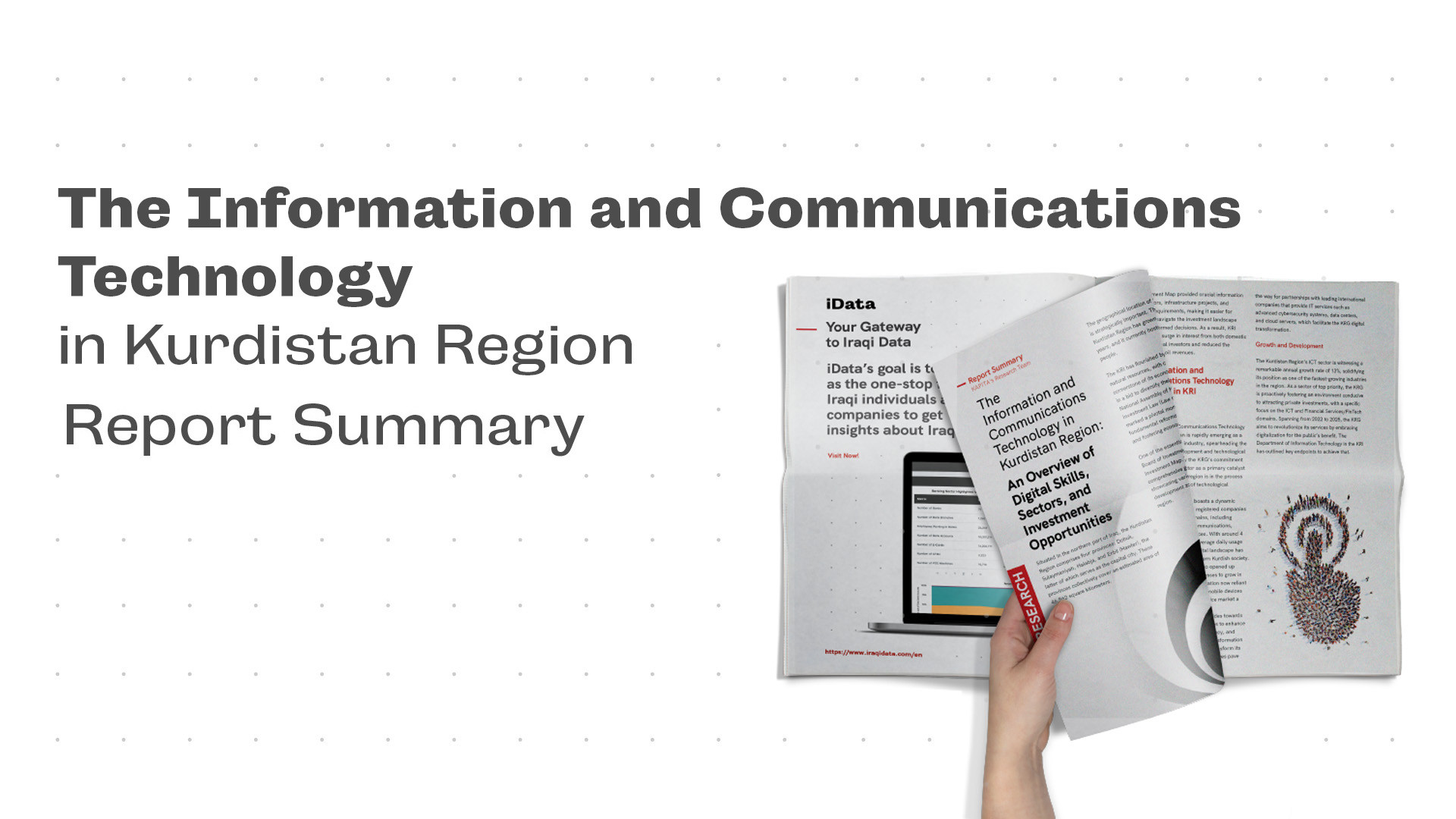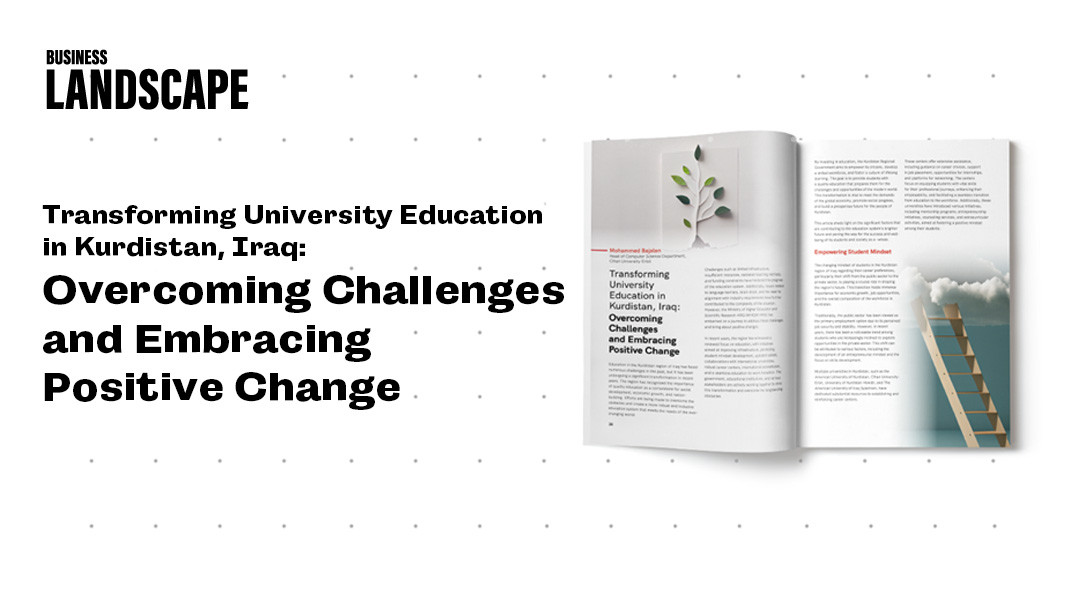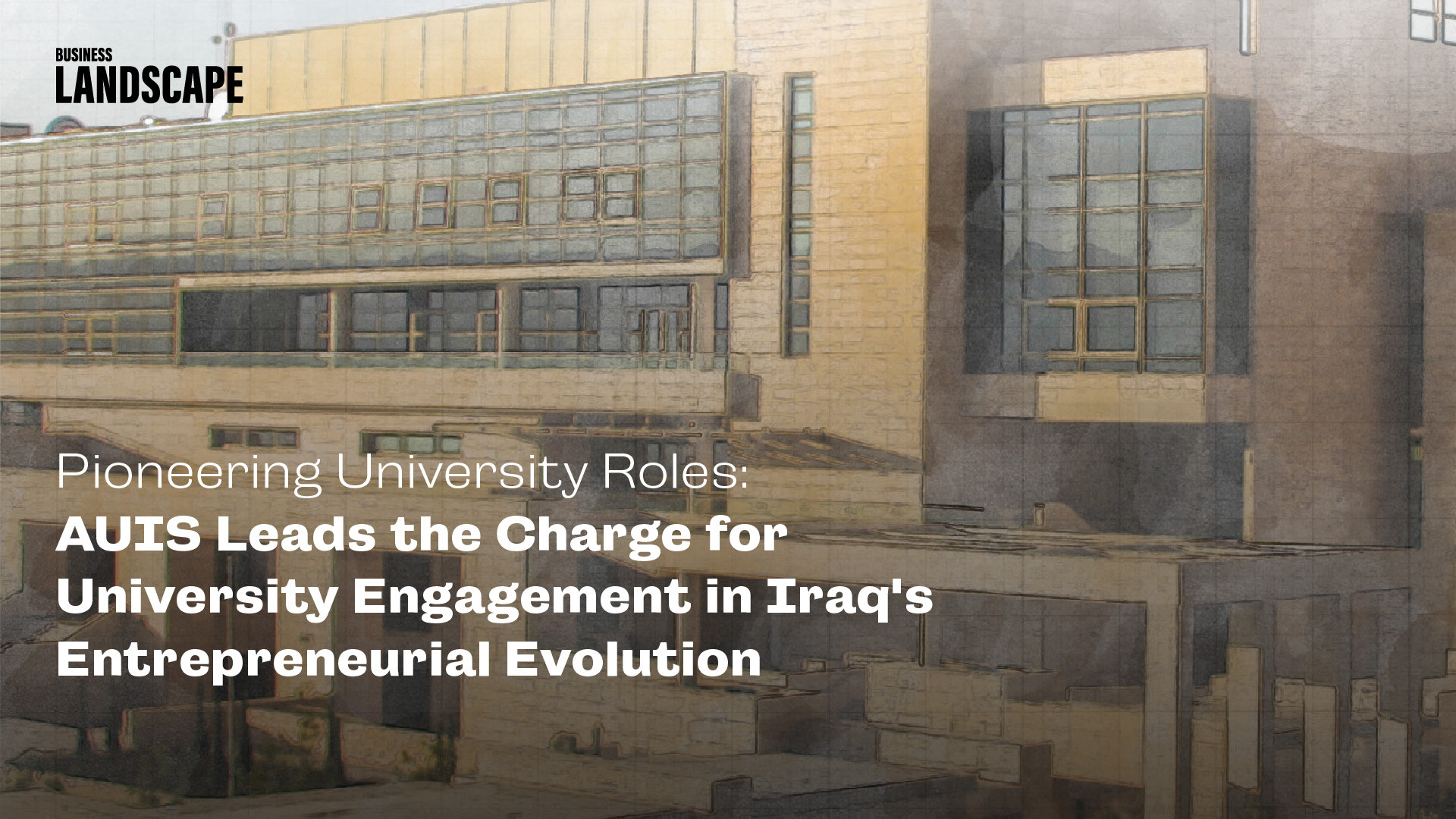Iraq As a Final Destination? Attempts to Build a Thriving Ecotourism Scene
Isa Mohammed
Editor, Business LANDSCAPE
There is a historic and deeply rooted connection between nature and Iraq. Climate change has always played a vital role in the mythology and national identity of the land. In one of the earliest works of literature, the Epic of Gilgamesh, we find the protagonist fighting a lot of natural factors to end up being confronted by the story of the great flood in his quest for immortality. That deep connection with the ecology of Iraq has been a constant theme, as the land has always been named after its ecological ecosystems. The Greeks called it Mesopotamia, “the land between rivers.” The Arabs named it Wadi Al-Raifidain, “the valley of the two tributaries.” Many human cultures in Iraq grew with a deep connection to nature, the Mandeans by the riverbanks, the Kurds in the mountains, Arabs in the marshes, and Bedouins in the deserts.
Today, many of those lifestyles are threatened, as this current wave of climate change is unprecedented. The ripple effect has had its waves on all aspects of Iraqi lives, affecting far and wide almost all aspects of life. The conversation about climate change has been ongoing, but it seems to neglect tourism and ecotourism, which is one of the most intertwined sectors with climate, as the potential of ecotourism could extend to be a source of employment, business opportunities, and recreation.
Tourism is one of the most growing sectors in Iraq and is one of the most lucrative sectors worldwide, with 10% of the global workforce being a part of that sector. Due to the fact that Iraq has been in a constant state of conflict since 1980, this sector has been neglected, mismanaged, and lacked the appetite for investment by both private investment and public investment. However, as Iraq is experiencing a relative period of peace, this sector is being revived slowly but surely.
This was highlighted by an increase in the number of travelers. According to Iraq’s Civil Aviation Authority, the number of foreign visitors in 2021 totaled 4,908,797, witnessing a 145% increase from 2020. This increase was more publicly pronounced by the recent Gulf Cup held in Basra, which further accelerate the growth of the sector. Yet, climate change is becoming a new obstacle for startups and the industry in general, as it poses a lot of challenges for their businesses.
An Adventure to Where Prospects and Realities Meet
Business LANDSCAPE spoke to Ahmed Oodah, co-founder of ‘Wen,’ a tourism startup that has been operating in the sector since 2019, to give us some insights on the challenges caused by climate change to the tourism sector. “During the past two years, the tourism sector has seen some minor development in terms of tourism activities, conferences that are designed to encourage tourism, and an increase in the number of foreign tourists. However, the shadow of climate change has loomed over those developments. Many of Iraq’s ecological landmarks have disappeared due to drought; lakes and vast areas of marshes in southern Iraq that used to be a hallmark of tourism.” Ahmed also emphasized how climate change has directly affected their business. “Drought and desertification have caused a decrease in our touristic activities. The exponential increase of temperature forced us to decrease the number of tours we took to cities in the south.”
Data supported Ahmed’s claim as temperatures have doubled in the past two decades, according to KAPITA’s Climate Change Overview. “Drought has turned many bodies of water, like the Hor Showija marsh in Wasit, prompting us to completely remove it from our list,” Ahmed added. “There are also many green lands that we used to visit that are now desertified due to the lack of precipitation and pollution, like the Zurbatiyah district in Wasit.” As of 2021, around 16% of land in Wasit has already become a desert, while 30.51% is at risk of following suit. These numbers do not account for the urban areas that have swallowed up even more land.
Yousif Al-Fahad, founder of the ecotourism startup ‘Advenature’ who is a traveling volgger as well as a business owner, told the Business LANDSCAPE about the challenges they are facing in this field. “I have a negative outlook on the situation in general. I, annually, lose a location or more due to climate change and human intervention in natural landscapes.”
Be Aware: Dust Storms Ahead
The impact of dust storms is highlighted by the closure of several Iraqi airports during April 2022, further straining the tourism industry, by shutting down important airports in different cities across the country, namely Baghdad, Erbil, Najaf, and Sulaymaniyah. According to the Director-General of the Iraqi Ministry of Environment, the number of dusty days each year has climbed from 243 to 272 in 2022 and that number is expected to increase to 300 by 2050.
Yousif commented on that stating “Many lakes, rivers and waterfalls have completely vanished. Many reservoir lakes are losing too much water. The lack of rainfall is causing many waterfalls to be closed during the early months of summer.” Thus, further exacerbating the advent of dust storms due to the desertification.
The Intended Destination: An Ecotourism Hub
Yousif is deeply concerned about the uncertain future of ecotourism and believes that unless specific and serious measures are to be taken, it will continue to be at risk. “Tourists are a contributing factor to climate change because of the trash they leave in ecotourism sites and or throw in rivers. As well as the cutting down of trees which is killing nature.”
He went on to emphasize that “it is a responsibility that befalls on tourism companies to spread awareness to tourists about climate change and its effects on nature and tourist attraction sites. That must be on the top of the list of things required of ecotourism companies. Then there is the task of providing garbage disposal capabilities and the usage of alternative energy in those sites.” Yousif also added that there is an important aspect of awareness that lies in the hands of the governmental authorities. “The government must create awareness campaigns that focus on the education of the tourist and citizen, as well as provide the knowledge tools to ecotourism companies because they are the most impactful in this regard. The installation of billboards that show the effects of climate change in the tourist attraction sites as well as social media campaigns by influencers that showcase the negative impact of the tourist behavior must be at the forefront of the government agendas regarding ecotourism.”
“We need more awareness about the concept of ecotourism. The government must be responsible to make sure that this sector can thrive. However, it is not the only stakeholder here; environmental activists as well must have the resilience and persistence in the face of those challenges,” Ahmed Oodah echoed the sentiment about awareness. “There is still a lack of awareness about tourism in general, promoting ecotourism, thus, will face resistance and a lack of proper response by both tourists and locals alike. We need to raise awareness and educate people about the importance of the environment and its protection and showcase the dangers associated with climate change to the populace, specifically those in rural areas. This effort must be undertaken by all stakeholders; government entities, civil society organizations, environmental initiatives, and the tourism sector in general.”
The scarcity of data about ecotourism is evident, as it is a vital component of Iraq’s tourism industry, which has seen a steady decline during the past four decades due to constant conflict. There is not much research done that pinpoints the struggles of the sector rather than this sub-sector. For ecotourism to thrive, the subject must be put in the zeitgeist and be discussed on a larger scale. Ahmed believes that “tourists themselves need to understand the subjects of desertification, climate change, and their individual responsibility towards the protection of the environment. This is what we try to educate about in almost all of our activities,” On a final note, Yousif Al-Fahad concluded with an optimistic tone “if we invested correctly in ecotourism sites, we could allow for more job opportunities for the local inhabitants, perverse the sanctity of nature and indigenous wildlife, as well as advancing the Sustainable Development Goals (SDGs) for the whole of Iraq.” Between the optimistic and the pessimistic view, would Iraq manage to become an ecotourism hub? You, as one of the relevant stakeholders, could have the definitive answer.
